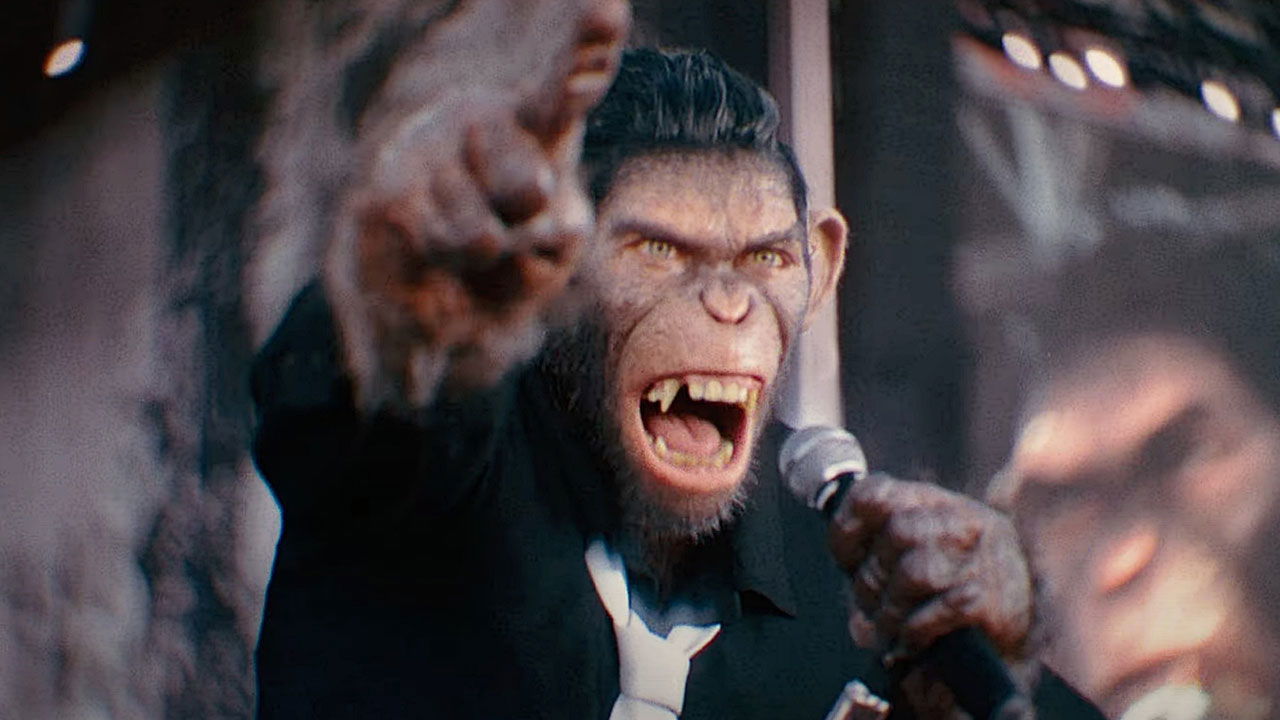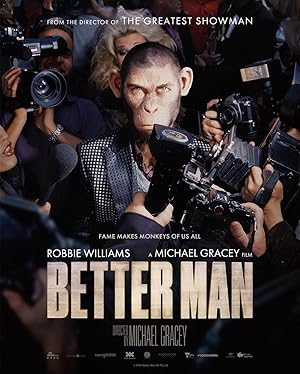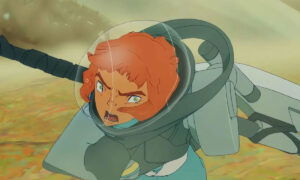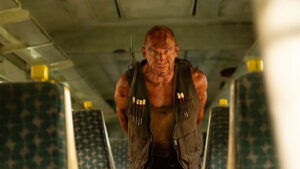On paper, the concept of Better Man reads like a drug-induced fever dream: a biopic about British pop megastar Robbie Williams, where Robbie is entirely portrayed on-screen by a CGI monkey voiced by Jonno Davies. No one else in the movie acknowledges it—it’s all played completely straight. Born from Williams likening being on stage to being a performing monkey, it’s an odd gamble for Greatest Showman director Michael Gracey to make it into an entire film. After watching it, I can say that not only did the gamble pay off, but Better Man hit the jackpot by being the most refreshing biopic I’ve seen in years.
Growing up in the town of Stoke-on-Trent with his mother and grandmother, Robbie dreamed of being a singer-songwriter, boasting a love for Sinatra gained through his father, Peter (Steve Pemberton). Although Peter would abandon him and his family at a young age, at 15, Robbie auditioned and became a member of the boy band Take That, becoming a sensation throughout the early ’90s. However, clashes with his bandmates and management—as well as his new hard-partying lifestyle—propelled him to leave the group and pursue a solo career. His career skyrocketed even higher from there, but his addictions and demons threatened to destroy both his relationships and himself.
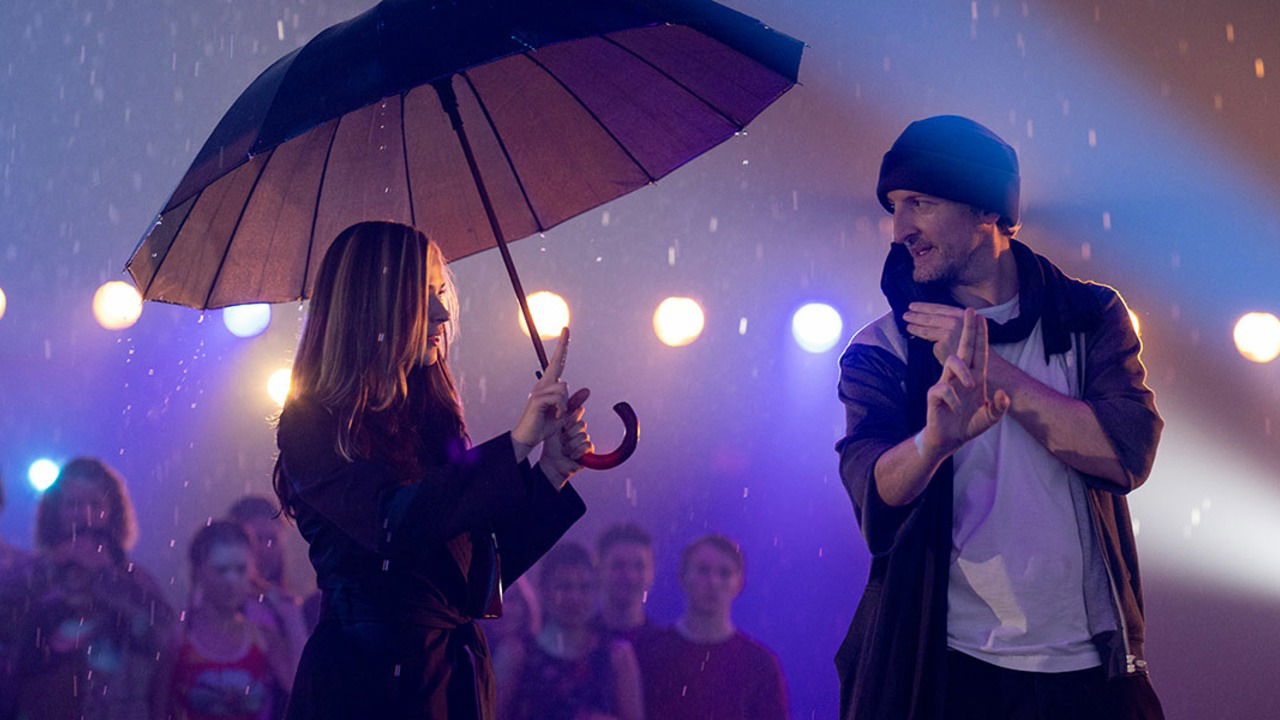
My frustrations with musical biopics in general (especially the ones I’ve reviewed this year) stem from the avoidance of addressing the subjects’ rougher edges for the sake of maintaining a sanitized image. Right off the bat, Better Man sets itself apart not just with the CGI monkey gimmick but by being a true warts-and-all telling of Williams’ story. He is brash, hilarious and refreshingly candid about the ugly parts of himself—from his frequent struggles with drugs and alcohol to his tumultuous relationship with All Saints singer Nicole Appleton (Rachaelle Banno).
“Right off the bat, Better Man sets itself apart not just with the CGI monkey gimmick but by being a true warts-and-all telling of Williams’ story.”
It’s not often a biopic starts with the artist directly calling himself a “narcissistic, s***-eating t***.” As for the monkey gimmick, you get used to it surprisingly quickly, thanks to the highly detailed effects from WETA and the impressive mo-cap performance by Jonno Davies and Williams himself (who narrates and sings in the film’s musical numbers). Gracey also uses the gimmick as a baseline to deliver some jaw-dropping musical set pieces, like a huge night on the town set to “Rock DJ,” a duet/dance between Williams and Appleton set to “She’s The One,” and a performance at the Knebworth festival that turns into a literal fight with the demons of his younger self. It’s a more insane ape fight than the actual Planet of the Apes movie we got this year.
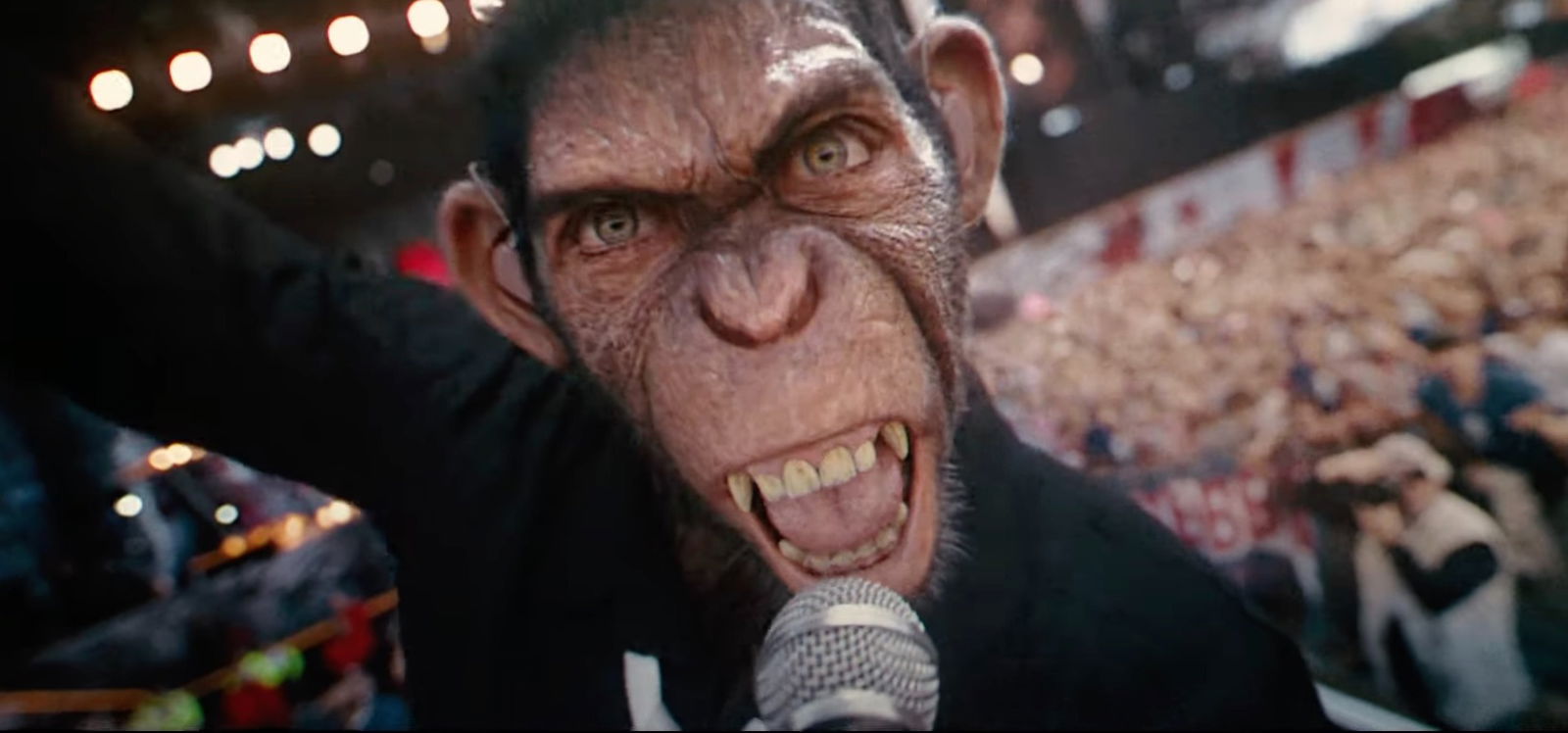
At its core, Williams is someone who was suffering from serious self-loathing and abandonment issues, and it manifested in harsh ways. Even as Better Man goes through the same rise-and-fall-and-rise-again formula as all biopics, it’s the rawest depiction of these events I’ve seen in a while. Making this film was clearly therapeutic for Williams, and even if the ending is telegraphed from five miles away, it still got me to well up a bit.
I’m still in shock that Better Man became one of my favourite movies of the year. It’s every bit the movie Bohemian Rhapsody should have been: it’s wild, it’s unflinching, and I walked out feeling like it captured more of who Robbie Williams truly is as a person outside of being a musical icon. Even if you know little to nothing about Robbie Williams beforehand (which would be fair, as he sadly never reached major popularity in North America), there’s a good chance you’ll walk out wanting to go through his entire discography by the end of it.
